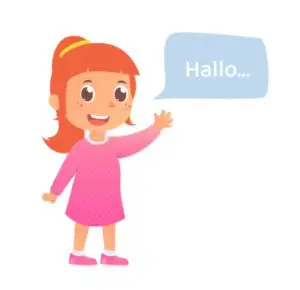
Singapore Maid Agency
Hi there! We’re the founders of Craft a Maid Singapore Maid Agency. We are a family with 2 beautiful kids. It’s been said many times before, but no two families are alike.
Hi there! We’re the founders of Craft a Maid Singapore Maid Agency. We are a family with 2 beautiful kids. It’s been said many times before, but no two families are alike.
Welcome to 12Hire Employment Agency Singapore
Home / Blog

Over the years, the role of foreign domestic workers (FDWs) has become the main role in our household. Your FDW sends and picks up your child to and from school, cooks for them, and attends to their needs at home. With their help, you can go outside work without worrying about anything. And you are not surprised some are even tasked to supervise your child’s daily homework.
This makes some parents worried thinking will my maid’s lack of proficiency in English or Chinese impact my child’s language development? Some might even think of having their child to learn a foreign language from her instead? Yes, I am referring to you, Mummy!
So the burning question now is how can I help my child acquire English proficiently with my maid in Singapore?
Through this guide, we hope to provide you a better understanding of the above question.
Q: Will my FDW’s lack of proficiency in English impact my child’s language skills negatively?
A: Good news! It will not impact your child’s language skills negatively, to a certain extent!

What does it mean to be proficient to be a language? Proficiency usually refers to a person’s ability to use a language for a variety of purposes, including speaking, listening, reading, and writing. So in simple terms, to consider your maid proficient in English is to regard her as an ‘expert’ which most of us are not! Hence, a more appropriate term would be ‘fluent’, where a speaker is comfortable with a language, which is not necessarily their first. Your FDW may have an accented English but that’s okay! All of us speak English with a little accent, and we may not even realize it. Accents are a result of where and how we have learnt the language we are speaking. Thus we have to understand that not everyone speaks English the way we do.
But usually, our FDWs have very limited vocabulary and poor sentence structure. One question leads to another will our child pick up poor grammatical habits? This seems to be the worry that most parents have. Fret not! Children will always make grammatical mistakes. It is in fact, all part of the language-learning process. For example, you may have heard your child saying runned instead of ran. So your child now has learned how to use past tense but overextends it to all verbs.
This is worth celebrating because it proofs that your child is not imitating whatever they hear from people they mixed with. In other words, they are smart enough to extract the language patterns they hear and filter out irrelevant messages even if your FWDs are uttering the incorrect verbs. [1]
Quality trumps over quantity when it comes to language. To ensure that your child develops proper language skills, ensure that your FDW have quality interactions with them. Children need to feel engaged in conversations especially if they are not enrolled in a preschool therefore it’s important for your children to feel connected with your FDW. Only through quality communication and interaction allows your child to say/learn new words and meanings. So encourage your FDW to build rapport with your child! After all, they are the ones accompanying them while you are at work and this might be the best opportunity for your child to learn more about another culture!
Q: How about learning different culture as mentioned above? Should I get my child to learn another language from my FDW?
A: Of course! You can get your child to learn another language! Rest assure that your child will not get confused.

FWD might be more comfortable conversing in her own language to your child, this is where you can let your child learn her language. There is no need to worry that your child will be confuse learning more than one language because as they are older, they will naturally lose their initial ability to distinguish speech sounds from various languages. This is because they tend to focus in on the sounds that occur in the language that their mothers would speak to them. However, if your child is exposed to a few languages at a very young age, they will be able to ‘retain’ the ability to extinguish these foreign sounds. This is due to the ‘critical period’ that enables children to pick up languages easily and effectively. [2]
So if your FDW speaks Jawa to your child, they will only speak in Jawa with their FDW. This is a good way for your child maintain a healthy relationship with your FDW. Furthermore, Singapore being a multilingual country, your child will constantly be exposed to a diversity of languages all around them.
At the end of the day, you know most of the time during weekdays are contributed to your work time leaving your child in the care of your FDW. So ensure that you set aside sometime (30 minutes) for your child at the end of the day and of course throughout the weekend. The language stimulation that you give to your child during these periods of time will make all the difference.
You can take help from technology and give your maid in Singapore access to online learning exercises that will train her in different target languages. Most of these apps are free to download and make it easier and a fun process for your helper to learn a language. These audio clips are important as they help your helper to listen and learn the language carefully. This is actually great for building the right language accent.
Contact us now if you have any questions relating to FWD in Singapore.

Copyright ©️ 2024 Craft A Maid | Powered by 12Hire Employment Agency.

Leave A Comment